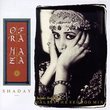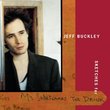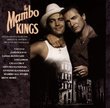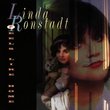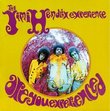| All Artists: Ofra Haza Title: Desert Wind Members Wishing: 0 Total Copies: 2 Label: Sire / London/Rhino Release Date: 1/5/1990 Genres: Dance & Electronic, Folk, International Music, Pop Styles: World Dance, Jewish & Yiddish, Middle East, Israel, Dance Pop Number of Discs: 1 SwapaCD Credits: 1 UPCs: 075992597623, 022924624926, 075992597616, 075992597647 |
Search - Ofra Haza :: Desert Wind
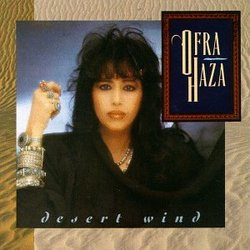 | Ofra Haza Desert Wind Genres: Dance & Electronic, Folk, International Music, Pop
She's been dubbed "the Madonna of the Desert," and this record is the reason why. Haza came out of her '80s folk-fan circuit and returned to her beloved Israeli disco-pop with this highly produced set of songs that were cl... more » ![header=[] body=[This CD is available to be requested as disc only.]](/images/attributes/disc.png?v=5b450bfd) ![header=[] body=[This CD is available to be requested with the disc and back insert.]](/images/attributes/disc_back.png?v=5b450bfd) ![header=[] body=[This CD is available to be requested with the disc and front insert.]](/images/attributes/disc_front.png?v=5b450bfd) ![header=[] body=[This CD is available to be requested with the disc, front and back inserts.]](/images/attributes/disc_front_back.png?v=5b450bfd) |
Larger Image |
CD DetailsSynopsis
Amazon.com She's been dubbed "the Madonna of the Desert," and this record is the reason why. Haza came out of her '80s folk-fan circuit and returned to her beloved Israeli disco-pop with this highly produced set of songs that were clearly designed for the mainstream. She's got an incredible set of pipes, and they are readily in evidence here. Haza is a charmer when she sings, soaring above even the most trivial studio dubs and musical overloads that exemplify the backing tracks. There are more traditional recordings available from Haza, both predating and following this one, that accent her Israeli and Yemenite heritage. Desert Wind is for those looking for a heavier beat, a harder pop edge, and exotic samples rather than deeper roots. --Louis Gibson Similarly Requested CDs
|
CD ReviewsSHE'S RUNNING ALL THE WAY... EriKa | Iceland | 10/02/2000 (5 out of 5 stars) "Ofra Haza's distinctive, pure voice may be gone, but there are countless albums available. Listening to Haza's albums, even upbeat, dance albums like this one, is a mourning exercise for me these days (even though it is October, 2000) and she has been gone for many months. Nevertheless, the intensity of her voice continued to amaze and surprise me, even when many of the songs echo the same sort of dance beat in the background. Her voice soars over all the other noise. Definitely underappreciated in the U.S. she was elevated to pop diva status in the Middle East and elsewhere. If you are searching for a strong-voiced female vocalist, Haza is a wonderful choice (and for those who have never heard of her, you may have heard her vocals in the film Prince of Egypt; she sang the part of Moses's birth mother as she is setting him adrift on the river). Finding fans in the U.S. now that she is gone might seem ironic, but you definitely would not regret this vocal journey. Of particular note are "Fatamorgana" and "Kaddish", although this entire album is splendid." Israel's desert angel dances to a higher beat Daniel J. Hamlow | Narita, Japan | 06/20/2002 (5 out of 5 stars) "The followup to Ofra Haza's landmark Shaday is a solid effort by Israel's late and great desert angel.The darbuka which made Shaday's "Im Nin Alu" so exotic is done to great effect in "Ya Ba Ye." The mid-paced "I Want To Fly" has the same sound without the darbuka.The best song by far and the most painfully relevant is "Middle East." Terrorism and fanaticism plague her beloved homeland, and the fanaticism runs rampant on both faiths (e.g. the groups Hamas and Hezbollah on one hand, Meir Kahane and Baruch Goldstein on the other). She truly wishes for peace between the two races, which unfortunately at this date, is like the song's two parallel lines that are destined never meet. This is a dance tune, by the way, and a catchy one at that.More leaning towards the Israelis are the plight of Jews in Ethiopia and Yemen who cannot emigrate to Israel and too often are forced to convert to Islam by the people there. That is the topic of "Mm'mma." Being allowed to leave to practice one's faith is one thing, but being prevented to do that, that's something else.The songs are more danceable here than on Shaday, such as "In Ta" and "Wish Me Luck." The latter song is an optimistic note on what the morrow will bring, happiness or sorrow.Her soaring melodic voices are at their best in the ballads, such as the mournfully beautiful "Kaddish" and "Slave Dream." As explained in the notes before the song lyrics, the kaddish is a prayer said on someone's death. The desert trek songs "Fata Morgana" and "Da'asa" are also showcases for her voice. The trek from Yemen to Israel was after all, what defined her family's life and as such, remain special to Ofra Haza. Even her mother makes a guest vocal appearance on the former song.In closing, a kaddish to the victims of the current Middle East violence, both Israeli and Arab, and a special one to Ofra Haza, who made two truly great albums, this one and Shaday." Can't believe we've lost her! Timothy Capehart | Dayton, Ohio USA | 03/02/2000 (5 out of 5 stars) "February 13th the world lost one of its most stellar voices. I still cannot believe Ofra Haza is gone. At least we have her recordings, and there are 10 to 15 that have not been released in America. Look for them!"
|

 Track Listings (11) - Disc #1
Track Listings (11) - Disc #1